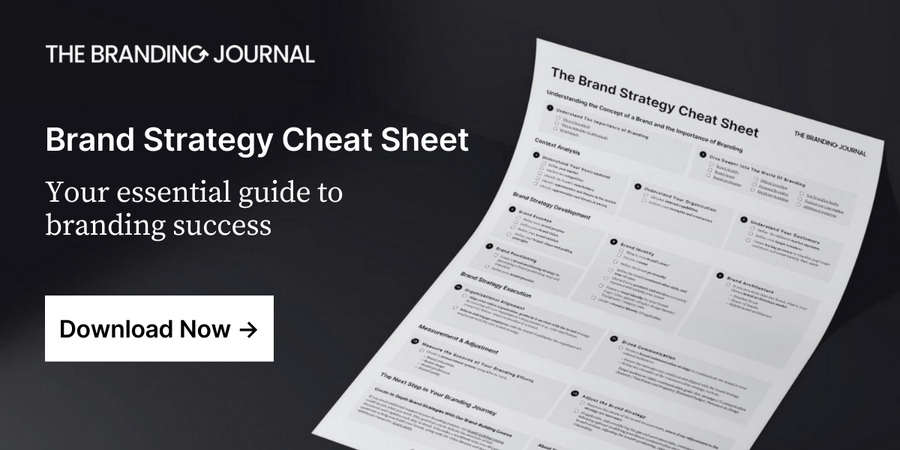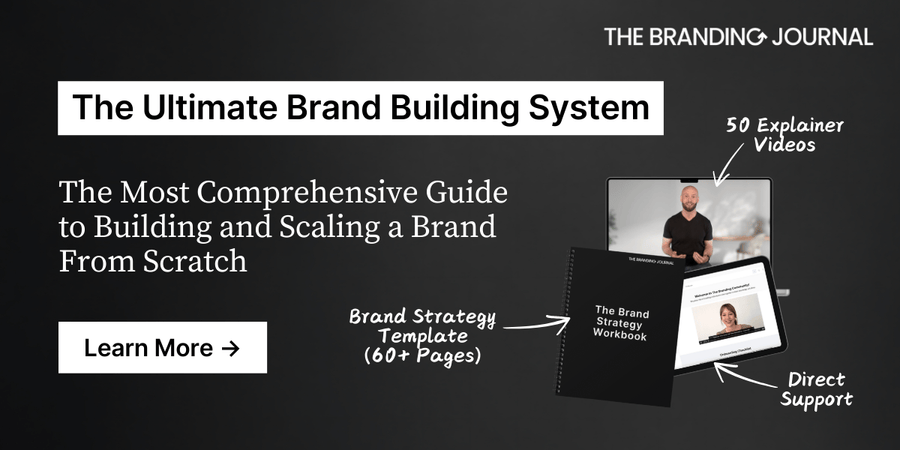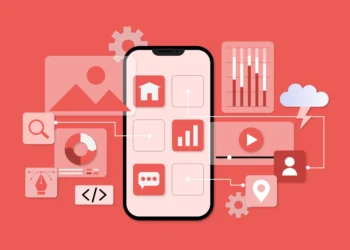Fail fast.
You hear that phrase a lot in marketing these days. The term, which arose from Silicon Valley startup culture, encourages businesses to experiment boldly and use rapid feedback to determine whether a product, strategy, or idea is viable.
Failing fast sounds appealing at a time when AI makes it possible for marketing teams to constantly test ideas, release them to the market, and revise them. But “fail fast” doesn’t always work well when you apply it to brand strategy. Here’s why.
Proven Systems for Business Owners, Marketers, and Agencies
→ Our mini-course helps you audit and refine an existing brand in 15 days, just 15 minutes a day.
→ The Ultimate Brand Building System is your step-by-step blueprint to building and scaling powerful brands from scratch.
Fail Fast in Marketing
Strictly speaking, “fail fast” is a methodology rooted in iterative processes, such as Agile development and Lean Startup principles. These approaches focus on testing ideas incrementally and learning from failures to improve future iterations.
“Fail fast” reframes failure as a learning opportunity. The fail-fast mentality aims to encourage innovation and adaptability while avoiding the sunk cost fallacy—the tendency to continue investing in a failing project because of prior investments.
In present-day marketing, the fail-fast philosophy is applied as a strategy to test, evaluate, and iterate on campaigns, ideas, or products quickly. It allows marketers to identify what works and what doesn’t early in the process, minimizing wasted resources and enabling rapid adaptation to market demands.
Businesses apply the concept by taking an interactive approach to all forms of marketing, such as adapting to customer feedback. When you gather real-time customer feedback, you can refine your campaigns or even pivot. For instance, GlaxoSmithKline incorporates agile sprints and beta testing into its marketing efforts to ensure campaigns align with customer expectations.
Generative AI takes the fail-fast approach to another level. With generative AI, a business can create multiple variations of marketing content (e.g., ads, emails, messaging) in a fraction of the time traditional methods require. This allows businesses to test different approaches simultaneously, gather immediate feedback, and adapt.
The Case Against “Fail Fast”
While a fail-fast approach to executing marketing tactics can be valuable, the discipline of brand strategy may not be ready for this concept. A brand strategy is a long-term plan that defines how your business will establish and differentiate your business in the market. Developing a brand strategy means thinking long-term about all the ways a brand shapes perception and purchasing decisions, such as a brand’s identity, values, positioning, and messaging.
You just don’t develop a brand strategy by failing fast. A brand is built through consistent messaging, values, and customer experiences. Frequent failures or abrupt pivots can confuse customers and dilute a brand’s image. Notable botched rebrands typically happen when a company confuses and alienates its audience with an attempt to pivot to a new name, logo, or positioning—when companies lose patience with their brand and change course.
One of the other flaws of the fail-fast approach is that trust and reputation are incredibly fragile, and when you fail fast, it doesn’t mean that your customers will “forget fast” when you commit a branding misfire. A brand is a promise to its customers, and failing to deliver on that promise—whether through inconsistent messaging or poorly planned campaigns—can lead to reputational damage. For instance, Dove’s controversial 2017 Facebook ad undermined its previously successful “Real Beauty” campaign, highlighting how even one failure can harm a brand’s reputation.
The fail-fast philosophy often prioritizes speed and experimentation above thoughtful planning, which can result in poorly aligned initiatives. Brand strategy, however, requires a deep understanding of the target audience, positioning, and long-term goals. Rushing through branding decisions without sufficient research or alignment can lead to costly mistakes, as seen in Gap’s failed logo redesign in 2010 that alienated loyal customers and similar missteps by New Coke, Tropicana, and Vegemite.
It seems counterintuitive in the digital age, but unlike product development or marketing experiments, brand strategy requires a steady approach to maintain credibility and recognition. This is especially true for multichannel brands that must develop a consistent brand across multiple touchpoints ranging from digital to analog customer experience. Change one element in the mix, and you can confuse your customers. Continuous experimentation with your messaging dilutes what you stand for.
A Better Way
Businesses can incorporate testing and learning to develop brand strategies in very controlled ways that do not damage the brand or confuse customers. Rather than adopting a fail-fast mindset, brands should focus on:
- Iterative learning: gradually testing branding elements (e.g., messaging or visuals) through controlled pilots before scaling.
- Customer co-creation: engaging target audiences in the process to ensure alignment with their needs and values.
- Data-driven insights: using analytics to guide decisions while avoiding reckless experimentation.
- Resilience and adaptation: committing to long-term goals while remaining flexible to adjust tactics when necessary.
Consider customer co-creation, for example. This is a collaborative process where businesses involve their customers in the development of products, services, or marketing initiatives. Rather than relying solely on internal teams, brands engage customers as co-creators, applying their insights, preferences, and creativity to shape offerings that better align with real-world needs.
This approach develops a deeper connection between the brand and its audience by giving customers a sense of ownership and involvement in the brand’s evolution. Co-creation can take many forms, from soliciting feedback through surveys and focus groups to more interactive methods like idea contests, online communities, or prototype testing.
By integrating customer input into decision-making, co-creation makes the brand strategy more agile, enabling faster adaptation to market trends and consumer demands. It reduces the risk of misaligned initiatives by providing real-time feedback during the development process, allowing brands to pivot if needed. LEGO and Starbucks have successfully used co-creation platforms to crowdsource ideas for new products and services, ensuring that their brand strategies remain relevant and customer-focused.
This iterative collaboration not only improves innovation but also strengthens customer loyalty, as consumers feel valued and invested in the brand’s success. Ultimately, co-creation facilitates a dynamic approach to brand strategy that evolves alongside changing consumer expectations.
Fail fast? No. Test and learn? Yes. This can be done in the context of brand strategy as long as you set guard rails and act thoughtfully.
Proven Systems for Business Owners, Marketers, and Agencies
→ Our mini-course helps you audit and refine an existing brand in 15 days, just 15 minutes a day.
→ The Ultimate Brand Building System is your step-by-step blueprint to building and scaling powerful brands from scratch.



















